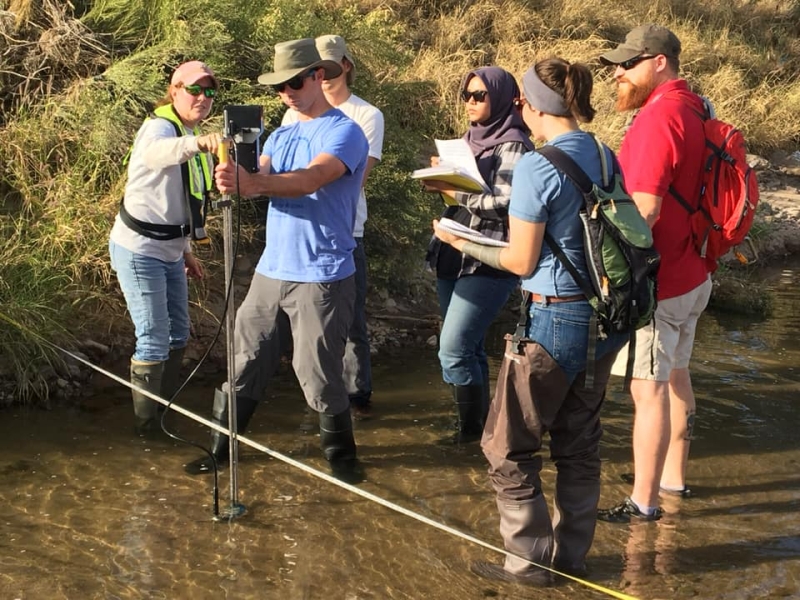
Astronomy (BS)
Main Campus, Tucson, United States
Overview
Astronomy
Bachelor of Science
Coursework Location(s)
Main/Tucson
Areas of Interest
- Computer & Information Science
- Engineering & Technology
- Mathematics, Statistics & Data Science
- Physical & Space Sciences
Overview
Calling all stargazers! Explore the cosmos and beyond at one of the finest centers for astronomical studies in the world. Astronomy is the scientific study of celestial objects, space and the physical universe. The Bachelor of Science in Astronomy is an intensive program that builds on a strong foundation of mathematics, physics and astrophysics. It is designed to prepare students for graduate school to pursue a Ph.D., as well as to gain professional employment in fields such as astronomy and astrophysics. The program and the research prominence of Steward Observatory combine to create a rigorous setting in which students learn from national and international leaders in astronomy, and enjoy access to premier observing conditions, world-class telescopes and a vibrant astronomical community.
Learning Outcomes
- Demonstrate the ability to meaningfully analyze, apply and integrate the principle findings, common applications, current problems, fundamental techniques, and underlying theory of the astronomy discipline.
- Improve knowledge of principle findings, common applications, current problems, fundamental techniques, and underlying theories in the disciplines of Astronomy and Planetary Science.
- Employ discipline skills related to the observational techniques, instrumentation, computational methods, and software applications used to investigate modern astrophysical phenomena and problems.
- Increase the ability to interpret, evaluate, synthesize and communicate about a wide variety of content central to Astronomy and Planetary Science.
- Develop proficiency with communicating, translating and interpreting fundamental astronomical concepts and research results in oral and/or written formats.
- Develop quantitative reasoning abilities and data fluency through investigations of a wide variety of astrophysical phenomena and problems.
- Conduct guided research and/or develop mastery-knowledge of a specific area of the discipline of astronomy.
- Develop the ability to communicate about fundamental astronomical concepts, research results and technological advancements in both oral and written formats.
- Gain an appreciation for the role that Astronomy and Planetary Science have played in art and literature and how this relates to important aspects of our society (and to your own personal life).
- Participate in the scholarly, ethical, and discipline specific practices of the field at an emergent level.
Program Details
Sample Courses
- ASTR 302: Observational Astronomy
- PHYS 371: Quantum Theory
- ASTR 400B: Galactic & Extragalactic Astrophysics
Career Fields
- Academia
- Aerospace
- Astrophysics
- Government
- Software engineering
- Science education
Sample Courses
- ASTR 302: Observational Astronomy
- PHYS 371: Quantum Theory
- ASTR 400B: Galactic & Extragalactic Astrophysics
Career Fields
- Academia
- Aerospace
- Astrophysics
- Government
- Software engineering
- Science education
Similar Programmes

Biology
University of Notre Dame, City of Perth, Australia
Earliest Intake
October 2024
Gross Tuition
38370 A$

Astronomy
University of Toledo, Toledo, United States
Earliest Intake
June 2025
Gross Tuition
37119 $

BA of Science BA of Arts
University of Notre Dame, City of Perth, Australia
Earliest Intake
October 2024
Gross Tuition
39807 A$

Hydrology (MS)
University Of Arizona, Tucson, United States
Earliest Intake
May 2025
Gross Tuition
32065 $

Hydrology and Atmospheric Science (BS)
University Of Arizona, Tucson, United States
Earliest Intake
May 2025
Gross Tuition
39958 $
Uni4Edu Support
